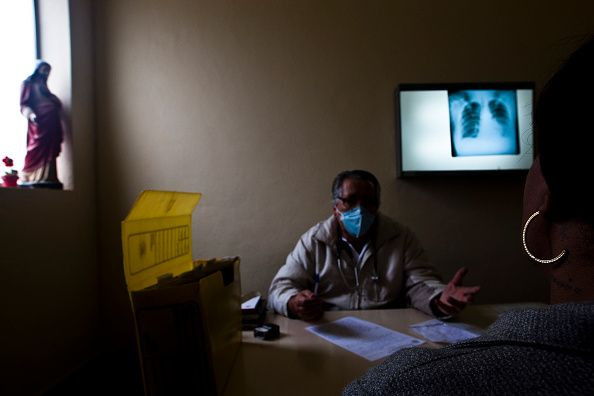Being Mean Causes Medical Errors; Why Nice People Get Better Patient Care Than Difficult Ones

Being a kind and cooperative patient can pay off in the hospital. A team of researchers from the Institute of Medical Education Research Rotterdam at Erasmus Medical Center in the Netherlands conducted two studies to learn if doctors treat difficult patients differently. Their findings, published in the British Medical Journal Quality & Safety, demonstrate for the first time how emotions can keep doctors from providing quality patient care.
It would seem that patients who are angry, disrespectful, rude, demanding, or who are just generally difficult make it hard for doctors to provide them with top-notch care. It’s hard to focus on the task at hand — including sophisticated medical diagnoses — when someone’s yelling at you. The medical institute wanted to investigate if particularly difficult patients influenced the type of care their doctors provided.
"Patients who behave disruptively by displaying disrespect or aggressiveness may induce their doctors to make diagnostic mistakes," the study’s co-author Dr. Silvia Mamede, an associate professor with the Institute of Medical Education Research Rotterdam, told Healthday. "As might be expected, these behaviors provoke emotional reactions in doctors."
For the first study, researchers recruited 63 family medicine doctors from Rotterdam and recreated scenarios where patients behaved either disruptively or neutrally. Disruptive patients made frequent demands, ignored the doctor’s advice, or acted helpless, while neutral patients were compliant. Next, researchers asked the doctors to diagnose the patients in each situation. When faced with a complex case, doctors made 42 percent more mistakes when their patient was difficult than when their patients’ behaviors were neutral. When the patients’ cases were simpler, doctors made 6 percent more mistakes when treating a difficult patient.
In the next study, researchers repeated the scenarios for 74 internal medicine residents and found when the case was moderately complex, doctors made 20 percent more mistakes when their patient was difficult compared to neutral patients. Because the effect is consistent across the board, researchers suspect similar statistics are found in real-life medical situations.
On average, approximately 15 percent of patients treated in doctors’ offices are aggressive, disrespectful, overly demanding, or distrustful, according to Mamede. This gives doctors ample opportunity to make an inaccurate diagnosis.
"Physicians should be trained to deal with these disruptive behaviors explicitly and effectively," Mamede said. "An aggressive patient can be calmed. A patient who displays lack of trust in his doctor can be referred to another doctor."
According to the American Academy of Family Physicians, it’s natural for doctors to change their care in order to adjust to a particular patient’s behavior. For example, a patient who is in pain, nervous, or fearful and has been waiting for an hour may be angry and make the doctor feel rushed because they have been made to feel angry. The Academy recommends doctors take a breath, apologize, and provide a constructive response before moving forward with careful and well-thought out treatment.
Sometimes pain naturally gives way to impatient and difficult behavior, which is ultimately something the doctors will have to learn to deal with and still provide a sound diagnosis. In the end, doctors may need additional training to prepare themselves for confronting the inevitable difficult patient. Mamede and her colleagues plan to replicate the study in real-life cases in order to see how true their findings are in the real world.
Source: Mamede S. BMJ Quality & Safety. 2016.
Published by Medicaldaily.com



























